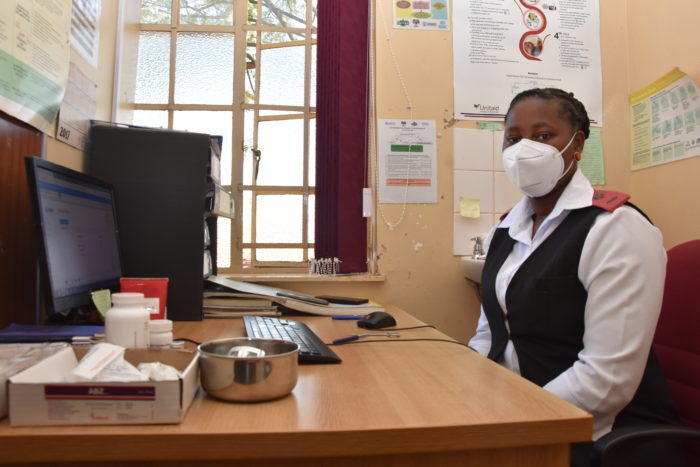In October 2020, we are coming together virtually with partners and supporters for our annual A Time for Heroes.
You can be a hero too: learn more about how to support.
#HeroesHelpingHeroes
Families with children require access to health care, even during a pandemic. This is especially true for those families affected by HIV. In Eswatini, health workers are working with the Elizabeth Glaser Pediatric AIDS Foundation (EGPAF) to provide care and treatment for children while taking precautions to keep children and their families safe from COVID-19.
With the support of EGPAF and through the PEPFAR supported mentorship program, the facilities limited the number of people, including HIV-positive mothers and their children, coming to the facilities for health services.

Neliswa Zulu, a nurse at Lobamba Clinic, is one of many healthcare workers who is working to ensure that there is no disruption of services for families, despite the challenges. She and her colleagues receive support from EGPAF’s mentorship team.
Whenever we find ourselves faced with a difficult task, as we do our work, we know that our mentors will provide a solution. Neliswa Zulu, nurse at Lobamba Clinic
“Whenever we find ourselves faced with a difficult task, as we do our work, we know that our mentors will provide a solution. They are very supportive and make things happen for us in the facilities,” says Zulu.
While acknowledging the challenges that mothers face in bringing their children to the facility during a national lockdown, Zulu is pleased that the clinic has been able to continue providing services to help pregnant women living with HIV remain on treatment to prevent mother-to-child transmission of HIV.
“Since the first lockdown, we have made sure as a facility that we call all our mothers living with HIV to check how their babies were doing and also made sure that they spend the shortest [amount of time possible] in the facility on their refill dates,” she says.
Zulu says the facility is cognizant of the fact that if an HIV-positive mother misses her appointment in the facility, there is a risk of non-adherence to treatment and increased HIV viral load for the mother, which may increase the chances of a breastfeeding child becoming infected with HIV. Mothers are encouraged to immediately contact the facility if they discover any abnormality in their health and that of the child who is on treatment.
We have physically distanced, but we remain socially in contact with all our mothers to ensure that they get the support from us. Neliswa Zulu, nurse at Lobamba Clinic
“We have physically distanced, but we remain socially in contact with all our mothers to ensure that they get the support from us. Our Expert Clients are frequently in contact with the mothers using the phone and airtime support we received from EGPAF,” she said.
While in the facility, pregnant women and new mothers are educated on a number of topics, including how to protect themselves and their children from COVID-19, which is especially important if they are not yet virally suppressed and have compromised immune systems.
In adherence with national COVID-19 protocols, mothers living with HIV and their children are also being screened when visiting health facilities to ensure that they are COVID-19 free.




